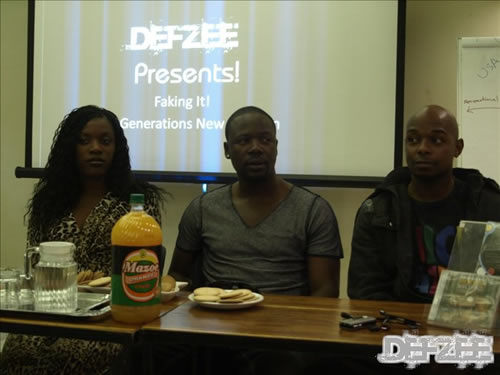I stumbled upon the information that Oliver Mtukudzi is the highest selling artist in Southern Africa. I knew he is well respected the world over, but the highest selling? It made sense; the man is a musical genius.
I remember when I was in South Africa a few years back I noticed that all the good music stores had a whole shelf of Oliver Mtukudzi music and his CDs were much more expensive than those of say Hugh Masekela. Oliver Mtukudzi sings entirely in Shona. That means the majority of his fans do not understand him, at least on a lyrical level. His musical arrangements are so brilliant; I would love instrumentals of his if he released an instrumental album.
But his genius is in his lyrics:
mhiripiri ine munakiro wayo/kana sugar inemanakiro ayo/munyu une manakiro awo/kuvava kuvava hayo mhiripiri, inga ndomanakiro ayo/kutapira kutapira hayo sugar inga ndomasikirwo ayo/kuvavira kuvavira hawo munyu nokuti manakiro awo…mukurarama katifanani/kana chimiro hachifanani/kana mhuka dzesango hadzifanani/ndomasikirwo acho/saka tisashorane mukurarama/tisasekana mukurarama/tinzwisisane mukurarama/
Roughly translated the Shona lyrics are: chilies are delicious in their own way/sugar is delicious in its own way/salt is delicious in its own way/chilies are hot and they are delicious that way/sugar is sweet and it’s delicious that way/salt is delicious in its own way…in life we are not the same/we are not the same in build/even wild animals are different/ that’s the way they were created/so let’s not look down upon each other in life/let’s not laugh at each other/let’s live in harmony together…
It’s a song that speaks directly to Zimbabweans; we are highly intolerant of each other’s divergent views, opinions and differences along tribal lines, political lines and so on. We have taken on the bad habits of our leaders who go to extreme lengths to eliminate political opponents and this has led to bloody elections all the time. It’s a vicious cycle that will continue long after we have gotten rid of the current leadership.
There is another song of Mtukudzi’s that has got a message along the same lines:
Buda pachena munun’una vagoziva zvaunofunga/ asika wochinzwawo zvavanofunga/kubudirana pachena muzukuru kuteera nekuteera/ naivo vachanzwawo/torawo mukana wokuteera zvinotaurawo vamwe/ worega kuropodza/ kuropodza zvisina maturo / chinonzi hurukuro/ kutaura tichinzwana/ votaura iwe uchiteerera/wotaurawo ivo vachiteerera…
… Come out young brother so we can know what you think/but also listen to what they think/being clear with each other is listening and listening/they will hear you/take time to listen to what others say/ stop rumbling on and on/ rumbling on senselessly/conversation is understanding each other/others talk while you listen/you talk and others listen…
One of our biggest weaknesses is talking down to people and not giving a damn about what they have to say. When was the last time your local MP listened to what you had to say? When was the last the time the people of Zimbabwe openly criticised the president without everyone in the vicinity scurrying for cover and fearing for the speaker’s life?
Oliver Mtukudzi’s songs are so full of meaning and I have enjoyed them for decades; ever since I was a little boy. Songs like Nhava talk of the Diaspora in a very enlightening manner. Songs like Bindu are just brilliant! Those who did not grow up listening to Tuku, as he is affectionately known, think he got onto the music scene in 1998 with the release of the highly successful album Tuku Music, but the man has been around. Remember Mbombela? Remember the soundtrack to the Movie Neria? I was born in the Ghetto, my mum in the Ghetto, my heart in the Ghetto, so you can call me the Ghetto boy…










